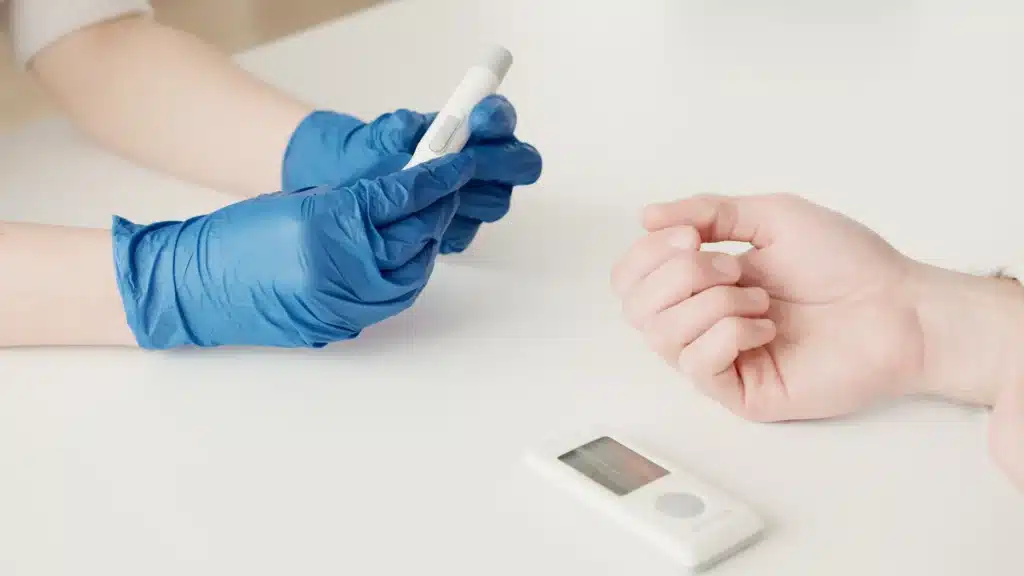Hospital utilization management requires constant communication between the utilization management team and physician advisors as well as continuously reassessing observation cases for possible conversion to inpatient status. Missing these opportunities leads to increased observation rates and reduced revenue. It can also lead to patients potentially requiring ongoing medical care beyond the observation period. Such patients should be constantly reassessed for inpatient status conversion in a timely manner. Read more about how AppriseMD’s processes supported inpatient status during a three-day hospital stay for a patient with uncontrolled diabetes and hyperglycemia.
CLINICAL SUMMARY: Poorly Controlled Diabetes
A 65-year-old patient presented at the hospital with shortness of breath, acute kidney injury, poorly controlled diabetes and hyperglycemia. The patient had a glucose level of 569, beta hydroxybutyrate of 10.4 as well as elevated creatinine and lactate. The patient has a medical history of chronic obstructive pulmonary disease (COPD), anxiety, bipolar disorder, gastroesophageal reflux disease (GERD), hypothyroidism and diabetes.
The patient was admitted under observation status and treated with IV fluids and insulin adjustment. The next day, the patient’s blood sugar was improving but still elevated. However, on the second day of hospitalization, complications arose due to hypoglycemia requiring close monitoring, further insulin adjustment and weaning off supplemental oxygen. An inpatient order was placed due to the need for ongoing medical and supportive care as well as medication adjustments beyond the observation time period. The patient’s acute kidney injury (AKI) improved during admission. Stabilized, the patient was discharged the following day on an insulin regimen and instructions to follow up with primary care physician for further insulin regimen titration.
 DENIED INPATIENT STAY
DENIED INPATIENT STAY
The insurance denial letter documented the patient’s admission for hyperglycemia and shortness of breath, noting a blood sugar level over 600 at the doctor’s office prior to hospitalization. However, the insurance company denied the inpatient level of care in lieu of observation status.
 THE APPRISEMD PROCESS
THE APPRISEMD PROCESS
AppriseMD physician advisors were in constant communication with the hospital team throughout this case, performing multiple second level reviews to determine the appropriate level of care. AppriseMD advocated for a change in status from observation to inpatient based on treatments required and complications that arose during the stay. At the time the inpatient order was placed, however, the patient’s initially unstable medical conditions had stabilized. Though the patient was not yet medically ready for discharge when the inpatient order was placed, the ongoing intensity of care had decreased. The payor denied the inpatient status request.
AppriseMD’s physician advisor conducted a peer-to-peer with the insurance company regarding the totality of the treatment and the timing of changes in status. The inpatient level of care was viewed in the context of the care throughout the entire stay, rather than in the period after the inpatient status was requested. The discussion included the patient’s treatments while in observation status for shortness of breath and hyperglycemia, including dangerously high glucose levels that required the need for IV fluids and insulin adjustments. It also included discussion of complications on the second day of hospitalization that required ongoing medical and supportive care and medication adjustments beyond the observation period.
AppriseMD’s collaboration with the hospital team throughout the entire UM process from second level reviews through the peer-to-peers resulted in a denial reversal and inpatient approval because of the need for ongoing medical management beyond the observation period.
Read more about guidelines for observation stays here.
OUTCOME: DENIAL OVERTURNED

